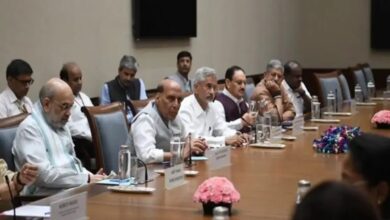
In a significant immigration ruling, a U.S. federal judge has blocked a Trump-era plan to terminate Temporary Protected Status (TPS) for more than 60,000 immigrants, including citizens of Nepal, Honduras, El Salvador, and Sudan. The decision brings temporary relief to thousands of families living legally in the U.S. under humanitarian protection.
Background of the Case
The TPS program allows nationals from certain countries experiencing armed conflict, natural disasters, or extraordinary conditions to live and work in the U.S. legally.
In 2018, under President Donald Trump’s administration, the Department of Homeland Security moved to terminate TPS for several nations, arguing conditions had improved. This led to widespread concern among affected communities and prompted a series of legal challenges.
Current Ruling Explained
The ruling, issued on July 29, 2025, by a federal judge in California, found that the Trump administration:
-
Failed to follow procedural requirements
-
Ignored expert recommendations
-
Did not adequately justify ending TPS status
As a result, the court restored protections for more than 60,000 individuals, including approximately 9,000 Nepali nationals, who were at risk of deportation.
Implications for Affected Nationals
Immigrants from Nepal, Sudan, and other countries will now retain their TPS designation, meaning:
-
They can continue residing in the U.S. legally
-
Work authorization remains valid
-
Deportation proceedings will not be initiated unless other grounds exist
“This ruling affirms the importance of procedural fairness and humanitarian principles in immigration policy,” said a legal advocate for TPS holders.
Political & Humanitarian Reactions
Human rights organizations and immigration attorneys have welcomed the decision, calling it a lifeline for families who have built lives in the U.S. over the past decade.
On the other hand, conservative groups criticized the ruling, saying it undermines the executive branch’s immigration authority.
The Biden administration, though not the original petitioner, has expressed support for re-evaluating TPS policy to ensure it aligns with both humanitarian needs and national security interests.
What’s Next?
While this ruling offers temporary protection, the fate of TPS beneficiaries still depends on:
-
Future court appeals
-
Legislative action in U.S. Congress
-
Any new executive orders issued by the current or future administrations
Immigration policy analysts stress the importance of permanent legislative pathways for long-standing TPS holders to avoid uncertainty every few years.
Legal Significance
The decision reaffirms judicial oversight over immigration enforcement, especially when humanitarian lives are involved. The court also emphasized the need for transparent, evidence-based decision-making in changes to protective statuses.










